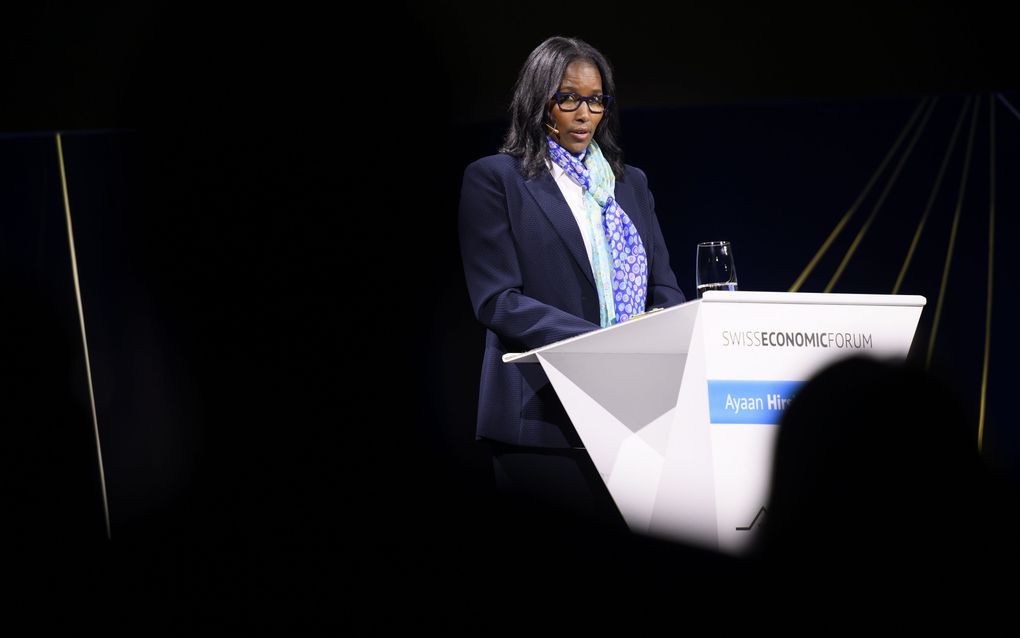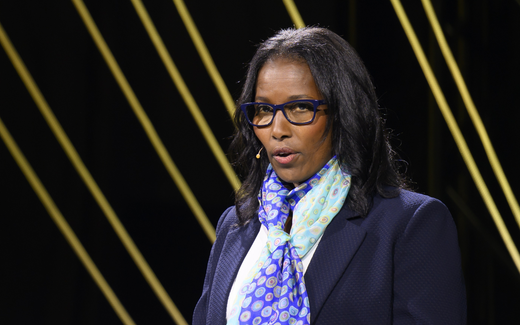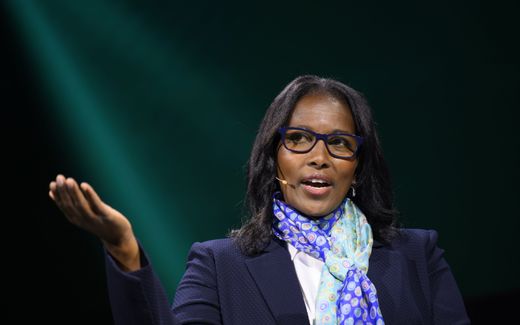If science is true, Ayaan Hirsi Ali becomes happier after becoming a Christian

Ayaan Hirsi Ali speaks during the Swiss Economic Forum SEF. Photo EPA, Anthony Anex
Christian Life
When the Institute for the Impact of Faith in Life (IIFL) published the results of their November study on faith and mental health, it revealed a promising result. Religious people are 20 per cent happier than those identify as atheist or less involved.
In addition to elevated happiness scores, the more religious also experienced higher levels of life satisfaction, according to results from the UK-based, Institute for the Impact of Faith and Life (IIFL).
Dr Jake Scott from IIFL said that the results are optimistic amid numerous religious conflicts happening throughout the world.
“There's a lot of fantastic work being done by groups like Alpha and of course by the archbishops [of Canterbury and York]. This finding really should be a signal that there's more shared between faiths than we realise,” he said to Premier Christian News in the UK.
Wellbeing
The study analysed 2000 adults over a ten-day period. After examining the role of their religious beliefs throughout their jobs, homes, and communities, researchers discovered that the “more religious” showed an elevated sense of mental wellbeing. Approximately 76 per cent label themselves as “happy” as opposed to 52 per cent who consider themselves atheists. At least 76 per cent show an overall satisfaction of life while a little over half (53 per cent) of atheists feel the same. When it comes to “good psychological wellbeing,” at least 73 percent claim this in the religious category while only 49 percent of atheists say that they felt the same.
The recent study proves what has been shown throughout yesterday and today. The world of atheism has its limits.
Relevant
The year, 2023 marks sixty years since the death of author and theologian, CS Lewis. It was until he was 31 years old when he turned away from atheism and gave his life to the God of Christianity. What makes Lewis’s writing still relevant today, according to Victoria Bø from the Norwegian, <a href=" Dagen" target="_blank">https://www.dagen.no/meninger/hvorfor-lese-lewis/?) is that Lewis imparted tools that bridge our understanding of Christianity. His works allow us to see “patterns” and hand us “verbal weapons” in giving a defence, Bø wrote.
“Through his elegant lines of thought and logical interpretation of Christian thought, he tests the faith and shows us that it holds up intellectually. It makes sense to believe also from a philosophical perspective,” Bø said.
Decades after CS Lewis’s death from kidney failure, Professor Emeritus Alister McGrath came out as another academic figure that maxed out on what atheism could offer.
“To my great astonishment, I began to realise that atheism was much more of a belief system than I had realised,” he said at this year’s Veritas Conference which was published in Dagen.
Earth
When he was at Oxford, he found himself surrounded by students and professors who could articulate their beliefs while showing how their faith made a difference. These experiences unravelled everything that he had thought about God.
“When I was young, I thought that if God is in heaven and I am down here, how on earth can a God be relevant to me here,” he said.
McGrath’s moment of relevance came after an eye-opening epiphany of Christ’s incarnation. In that moment, he became fully aware that God crossed time and space while becoming fully human. As He became “one of us” he saved us from dying in our sins, McGrath explained.
Atheist
Since his conversion to Christianity over fifty years ago, McGrath has written over fifty books, one of them being “The Dawkins Delusion” which challenges the claims of world-renowned atheist, Richard Dawkins. He also continues to be inspired by the scientific method in proving his faith.
“When you interpret something, there are many possible interpretations. Your task is to show why one of them is better than the others. That means you don't have to prove it's right,” he said in the Dagen report.
McGrath also said that secularism excludes “what really matters.” If there’s no God or moment of transcendence, it also fails in explaining man’s purpose in the universe.
Tactics
Most recently, research fellow and activist, Ayaan Hirsi Ali, came out to the media by describing atheism and its by-product of secular humanism in a similar fashion. A former follower of the Muslim Brotherhood and now an ex-atheist, she explained in a recent <a href=" Unherd" target="_blank">https://unherd.com/2023/11/why-i-am-now-a-christian/) column that our secularist tactics are beginning to “lose ground” in the war on the West. As the Western world fights an oncoming debt crisis, a technological battle with China, and war on wokeism, Hirsi Ali adds that we must first answer the question, “What is it that unites us?”
“We can’t withstand China, Russia and Iran if we can’t explain to our populations why it matters that we do. We can’t fight woke ideology if we can’t defend the civilisation that it is determined to destroy. And we can’t counter Islamism with purely secular tools. To win the hearts and minds of Muslims here in the West, we have to offer them something more than videos on TikTok,” she said.
Wilderness
For both the academics and the study participants at the Institute for the Impact of Faith in Life, one thing rings true. Purpose comes from God, and yet there is still much to learn, according to Hirsi Ali.
“But I have recognised, in my own long journey through a wilderness of fear and self-doubt, that there is a better way to manage the challenges of existence than either Islam or unbelief had to offer,” she said.
Related Articles











